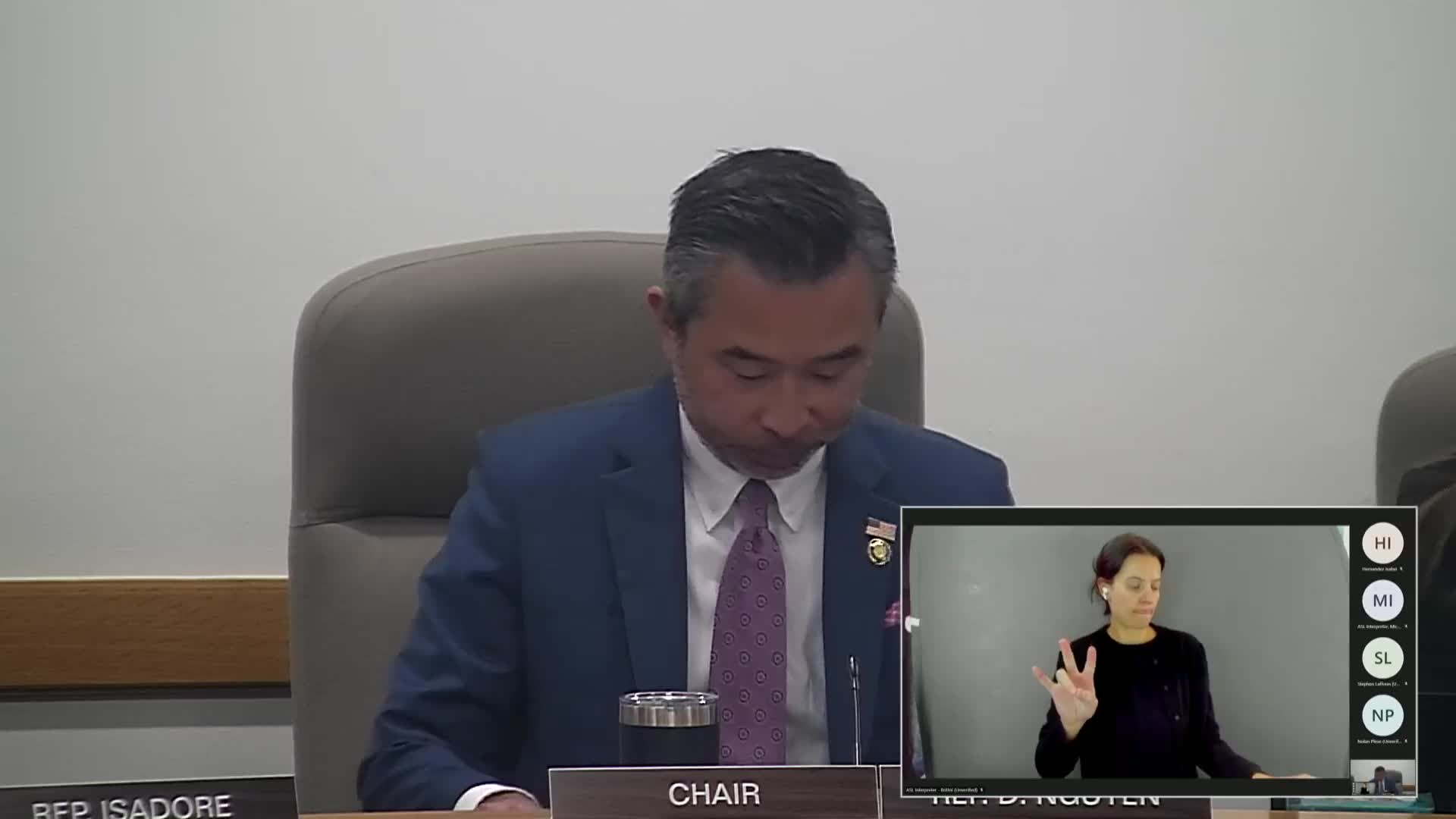Lawmakers hear testimony supporting $6 million for Centers of Innovation Excellence and signature research centers
Get AI-powered insights, summaries, and transcripts
Subscribe
Summary
During a public hearing on HB 2,417, Business Oregon and multiple bioscience and industry representatives told the committee that $6 million in general fund appropriations for Centers of Innovation Excellence and signature research centers would help retain startups, create high-wage jobs and leverage federal and private investment.
House Bill 2,417, as replaced by the dash-1 amendment, would direct the Oregon Business Development Department (Business Oregon) to provide grants to Centers of Innovation Excellence and signature research centers and appropriates $6,000,000 from the General Fund for Center for Innovation Excellence grants. The House Committee on Economic Development and Small Business held a public hearing on the measure on March 26.
Mark Brady, innovation and entrepreneurship manager at Business Oregon, provided committee background on the Oregon Innovation Council and the Centers of Innovation Excellence (CIEs). He told the committee the Innovation Council was created in 2005 and first funded in 2007; he said the council’s funding for the current biennium is $18,200,000. Brady described the CIEs as public–private partnerships that support early-stage research and commercialization and said the council’s investments from 2015–2023 leveraged about $2,800,000,000 in federal and private dollars from roughly $51,000,000 in state investment — a ratio he summarized as roughly 55:1.
Lisa Bozinovich (recorded in the transcript as Lisa Bozinovich), representing the Oregon Bioscience Association, urged support for HB 2,417 and the dash-1 amendment. She described the bioscience sector’s statewide economic footprint — testimony cited $21,200,000,000 in total economic impact and nearly 75,000 jobs — and argued that CIEs and signature research centers help startups secure funding and remain in Oregon.
Heather Ellis, executive director of Otradi (the Oregon Translational Research and Development Institute) and the Oregon Bioscience Incubator (OBI), told the committee that Otradi and OBI provide lab space, mentoring, and commercialization assistance to bioscience startups. Ellis said Otradi had leveraged $23,300,000 in state funding into more than $928,000,000 in federal and private investment and that OBI has expanded from six to about 30 startups using wet-lab and office facilities; she described OBI as critical infrastructure for university spinouts and early-stage bioscience companies.
Multiple company founders and local economic development representatives also testified in support. Steven Lafoon of Pandaria Technologies (appearing remotely) and John Harkness of ReWire AI described how incubator support and Business Oregon grants helped secure federal SBIR funding, recruit talent and attract investor interest. Michael Wallisch testified on behalf of Aranora, saying that access to OBI’s shared equipment, conference rooms and mentorship reduced costs and improved his company’s ability to win NIH SBIR awards.
OHSU senior director Aditi Martin described OHSU’s research portfolio and noted that Otradi-supported companies have created jobs and won federal grants; Tim Layton of Genentech and Caitlin Vargas of Collaborative Economic Development Oregon (Collaborative EDO) emphasized the role of state-level support in retaining and scaling bioscience businesses outside the Portland metro area.
Committee members asked about the selection process for CIE grants and how state funds relate to the agency’s base budget. Brady described an open application process with expert review panels, planning grants to help prospective centers prepare proposals, and said the HB 2,417 appropriation would be additional to Business Oregon’s Oregon Inc. line items in the agency budget.
Several witnesses and lawmakers pressed for mechanisms to retain companies in Oregon and to consider revolving or matching structures so state funds could be recycled if companies provide returns. Brady noted the agency’s commercialization gap fund as one mechanism that can generate returns and be reinvested over time.
The public hearing record for HB 2,417 on March 26 contained multiple endorsements from industry, research institutions and local economic development organizations. No committee vote was taken on HB 2,417 during the March 26 hearing; the measure awaits committee action.
